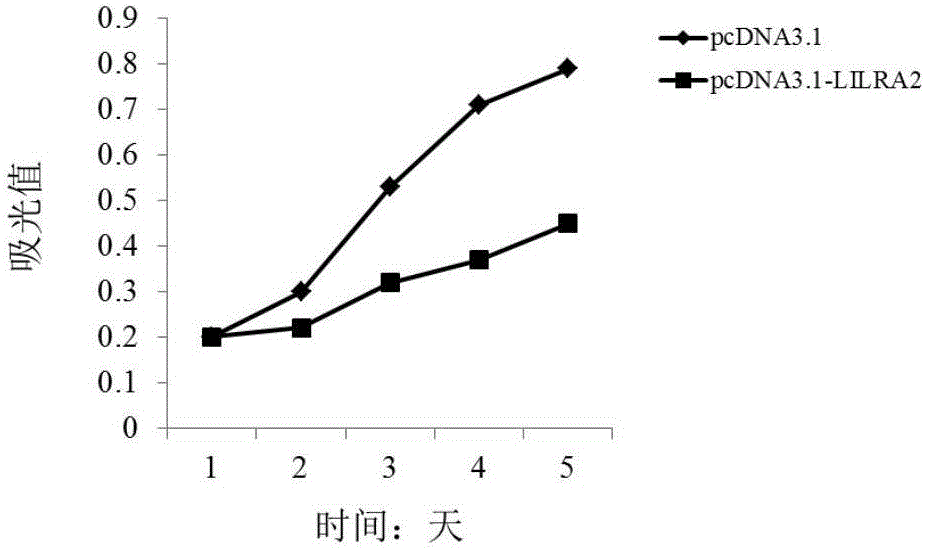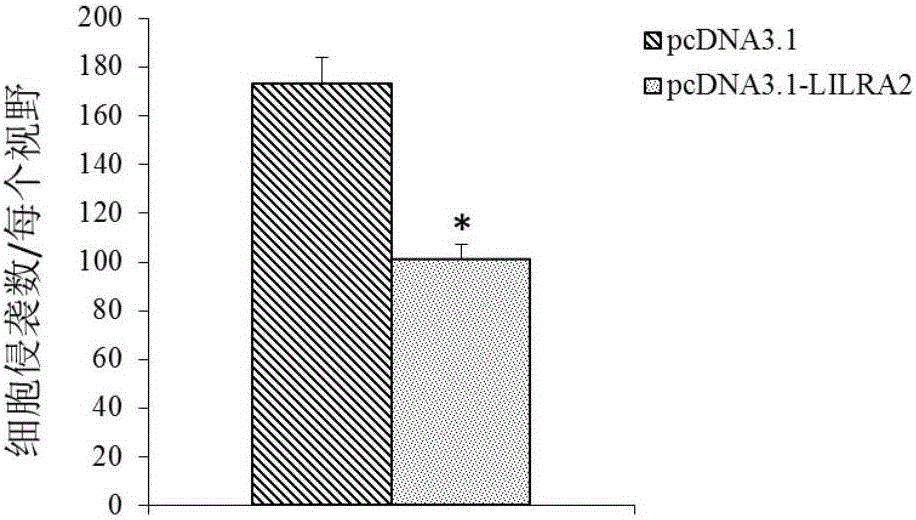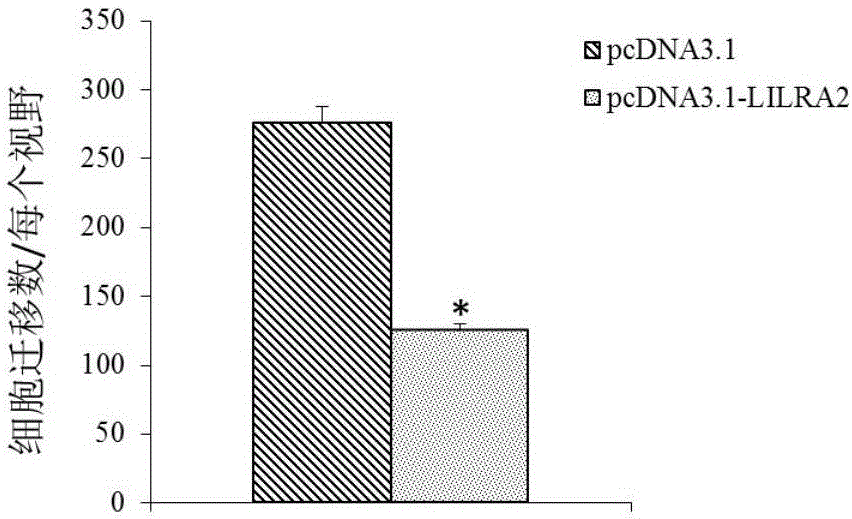Application of LILRA2 gene and expression product thereof as diagnosis and treatment target of multiple myeloma
A multiple myeloma and genetic technology, applied in the determination/testing of microorganisms, antineoplastic drugs, drug combinations, etc.
- Summary
- Abstract
- Description
- Claims
- Application Information
AI Technical Summary
Problems solved by technology
Method used
Image
Examples
Embodiment 1
[0069] Example 1 Gene Chip Screening for Differentially Expressed Genes
[0070] 1. Materials:
[0071] Multiple myeloma tissue: A total of 10 bone marrow biopsy specimens were collected from confirmed MM patients. The diagnostic criteria for MM refer to the "Chinese Guidelines for the Diagnosis and Treatment of Multiple Myeloma 2011 Revised Edition". Among the patients, there were 5 males and 5 females, with a median age of 59 years.
[0072] Normal bone marrow tissue: 10 bone marrow biopsy specimens were collected from patients with malnutrition anemia at the same period as the control group, including 5 males and 5 females, with a median age of 53 years.
[0073] 2. Obtaining tissue RNA
[0074] Total tissue RNA was extracted using the Trizol one-step method.
[0075] 3. Determination of RNA purity and concentration
[0076] Take 1 μl of RNA solution, measure OD260 and OD280 with the instrument, the RNA concentration is OD260 value × dilution factor × 40 / 1000, calculate...
Embodiment 2
[0089] Example 2 Large sample verification screened out differentially expressed genes
[0090] Considering that there is no gene in the prior art that has been studied on the correlation between this gene and multiple myeloma as a candidate gene, and considering the results of gene sequencing, the LILRA2 gene (its expression is down-regulated in multiple myeloma tissues) is selected for verification .
[0091] 1. Sample collection
[0092] According to the method of Example 1, 50 cases of multiple myeloma tissues and 60 cases of normal bone marrow tissues were collected.
[0093] 2. Validation at the mRNA level
[0094] 2.1 Extract tissue RNA
[0095] Step is with embodiment 1.
[0096] 2.2 Reverse transcription
[0097] A total of 20 μL of reverse transcription system, including 2 μg / 2 μL of total cell RNA, 1 μL of 50 U / μL Rnasin, 4 μL of 5× reverse transcription reaction buffer, 2 μl of 10 mM d NTP, 2 μL of 50 μg / mL random primer (promega), 200 U / μL M- MLV reverse tra...
Embodiment 3
[0120] Example 3 LILRA2 Gene Overexpression
[0121] 1. Plasmid construction
[0122] Amplification primers were designed according to the coding sequence of LILRA2 gene, and the design of primers is well known to those skilled in the art. Amplify the coding sequence of the full-length LILRA2 gene from the cDNA library of adult fetal brain (clontech company, article number: 638831), insert the above cDNA sequence into the eukaryotic cell expression vector pcDNA3.1, and connect the obtained recombinant vector pcDNA3.1 -LILRA2 was used in subsequent experiments.
[0123] 2. Culture and transfection of multiple myeloma cells
[0124] 2.1 Cell culture
[0125] RPMI8226 cells were placed in RPMI 1640 medium containing 15% fetal bovine serum (FBS), 100 U / ml penicillin, and 100 μg / ml streptomycin at 37°C, 5% CO 2 , cultivated in a saturated humidity environment.
[0126] 2.2 Cell transfection
[0127] (1) The day before transfection, 0.5-2*10 5 Tumor cells were suspended in 50...
PUM
 Login to View More
Login to View More Abstract
Description
Claims
Application Information
 Login to View More
Login to View More - R&D
- Intellectual Property
- Life Sciences
- Materials
- Tech Scout
- Unparalleled Data Quality
- Higher Quality Content
- 60% Fewer Hallucinations
Browse by: Latest US Patents, China's latest patents, Technical Efficacy Thesaurus, Application Domain, Technology Topic, Popular Technical Reports.
© 2025 PatSnap. All rights reserved.Legal|Privacy policy|Modern Slavery Act Transparency Statement|Sitemap|About US| Contact US: help@patsnap.com



